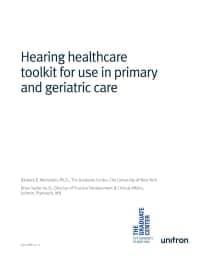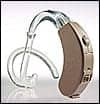Merri Rosen, PhD, director of Hearing Research at Northeast Ohio Medical University, has been awarded a 5-year, $2.3 million grant from the National Institute on Deafness and Other Communication Disorders (NIDCD) at the National Institutes of Health (NIH) to study the effects of early life stress on auditory perception, according to an announcement on the school’s website.
In the US, over 80% of children experience ear infections by three years of age. These ear infections often induce conductive hearing loss, in which sound is not conducted properly into the ear. In some children, early conductive hearing loss (CHL) induces long-lasting problems with auditory perception and speech processing. If these children are raised with additional environmental challenges, such as disrupted family attachment or low socioeconomic status, they are at greater risk for long-term language deficits.
Related article: Third Edition of Resource on Auditory Perception Test Released
Why? One explanation is that early-life stress (ELS) and early CHL could interact in the nervous system to produce compounded deficits in auditory perception. ELS has well-known effects on higher neural regions involved in attention and learning. However, evidence from the Rosen lab suggests a novel auditory effect for ELS: altering sound-evoked responses in the auditory cortex. This would degrade the fidelity of sensory representations available to higher brain regions affected by ELS. In this way, a sensory deficit would contribute to known cognitive problems with ELS. Furthermore, sensory degradation could compound the auditory perceptual issues known to arise from early conductive hearing loss.
Over the next several years, the grant will fund Dr Rosen’s lab to determine the effects of ELS on auditory processing: Whether ELS induces problems with auditory perception, and if it worsens perceptual problems arising from early CHL. Experiments will measure mechanisms at the cellular level by which ELS changes the parts of the brain which receive auditory information. Further, researchers in Dr Rosen’s lab will determine how ELS interacts with the effects of early CHL in central auditory neural areas to compound perceptual deficits.
The work will broaden the scientific community’s understanding of experiences that interact with hearing loss, and it will provide a focus for future experiments to determine how best to remediate these perceptual problems in children.
Read more about Dr Rosen’s work in “Stressful Home, Harder Hearing” in the spring 2019 issue of NEOMED’s Ignite magazine.
Source: Northeast Ohio Medical University




